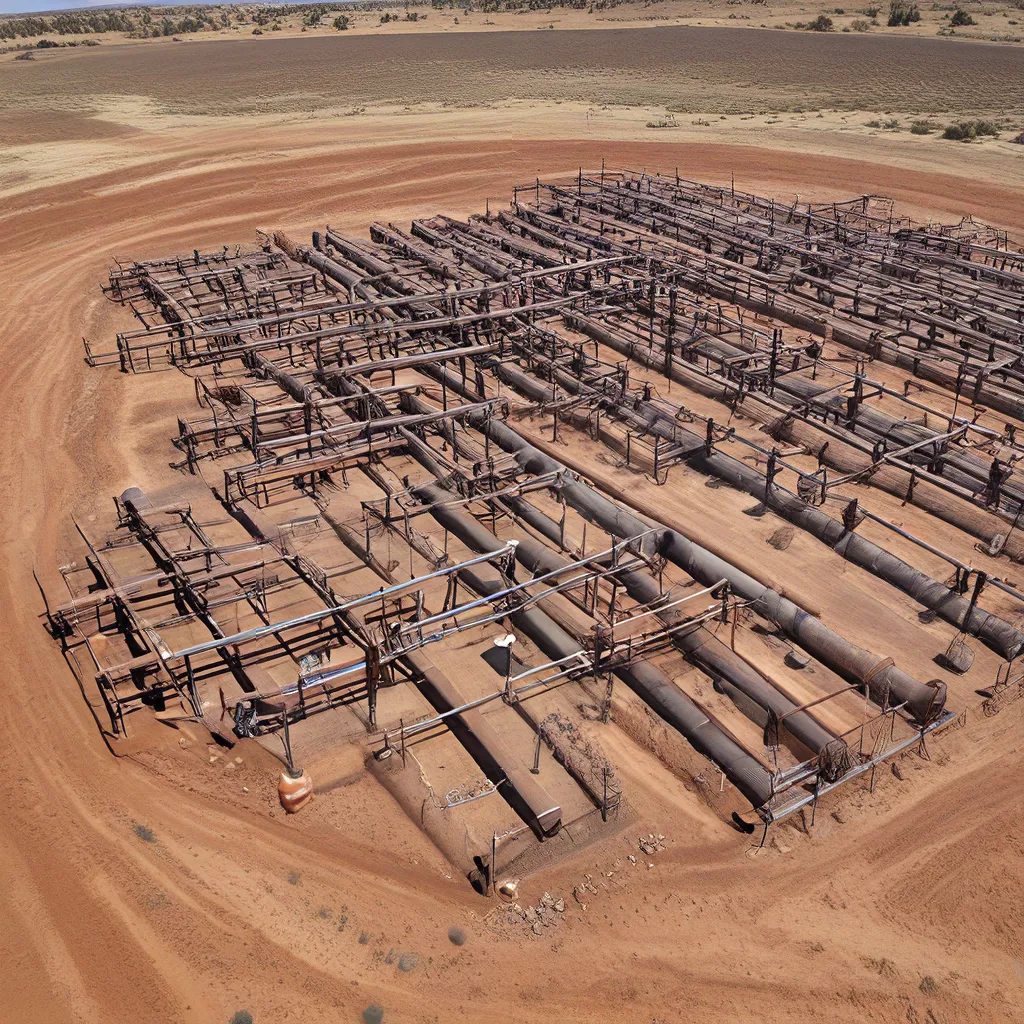
Understanding Advanced Oxidation Processes (AOPs)
As someone who’s deeply fascinated by the science behind water treatment, I’m always eager to learn about the latest innovations in the field. And when it comes to tackling those pesky micropollutants – like pharmaceuticals, pesticides, and personal care products – that traditional methods struggle with, advanced oxidation processes (AOPs) have really caught my attention.
You see, these AOPs have this incredible ability to generate those powerful hydroxyl radicals (OH·) – oxidizing agents that are twice as potent as chlorine. And the best part? They’re non-selective, so they’ll attack just about any organic material they come across, breaking it down into simpler, more stable compounds.
It’s kind of like having a molecular-level cleaning crew, just blasting away at all those tricky contaminants. And the coolest thing is, they can do it without introducing any new hazardous substances into the water – the end result is just water, carbon dioxide, and some harmless salts. Talk about an eco-friendly solution!
The Benefits of Advanced Oxidation Processes
Now, I know what you’re thinking – with all that oxidation power, there’s got to be a catch, right? Well, let me tell you, the benefits of AOPs far outweigh the drawbacks. Let’s dive in, shall we?
Rapid Reaction Rates: Those hydroxyl radicals I mentioned? They’re total speed demons, with some of the fastest reaction rates out there. This means AOPs can get the job done in a fraction of the time compared to other conventional treatment processes. Talk about efficiency!
Small Footprint: Because of the sheer oxidation power of those OH· radicals, AOP systems don’t need a ton of land area to process the necessary flow rates. This is great news for facilities with limited space – you can pack a lot of punch into a small package.
No Hazardous Byproducts: One of the big issues with chlorine disinfection is the nasty disinfection byproducts (DBPs) it can create. But with AOPs, the hydroxyl radicals just combine to form water – no toxic leftovers here, folks.
Thorough Mineralization: AOPs don’t just break down those organic contaminants; they go the extra mile and convert them into inorganic compounds like water, carbon dioxide, and salts. It’s like hitting the reset button on the water, leaving it squeaky clean.
Versatility: These advanced oxidation processes can tackle pretty much any organic material, from pharmaceuticals to pesticides to personal care products. And they can even remove some heavy metals – talk about a multitasker!
Disinfection Capabilities: On top of all that, AOPs can also act as a disinfection step, knocking out any pesky pathogens that might be lurking in the water. It’s a two-for-one special!
No Sludge Production: Unlike other treatment methods that create solid waste, AOPs don’t produce any sludge – the contaminants are simply broken down into harmless compounds. One less headache to worry about!
Overcoming the Challenges
Of course, as with any advanced technology, there are a few challenges that come along with implementing AOPs. But trust me, they’re well worth the effort.
Cost Considerations: I won’t sugarcoat it – the capital and operating costs of AOPs can be on the higher side, mainly due to the energy and chemical reagents required to run the system. But when you consider the benefits, I believe it’s a worthwhile investment.
Tailored Chemistry: AOPs come in various forms, each with its own unique chemistry that needs to be carefully selected to efficiently treat the specific water or wastewater in question. This requires highly skilled engineers to design the system correctly.
Residual Peroxide Management: For AOP systems that use hydrogen peroxide, excess residual peroxide may need to be addressed, as it can have potential negative effects on later treatment steps. But with proper system design, this can be easily managed.
Exploring the Future of Advanced Oxidation
As fascinated as I am by the current capabilities of AOPs, I can’t help but wonder what the future holds. Ongoing research in this field is constantly uncovering new ways to optimize and expand the use of these powerful oxidation processes.
For example, some experts are exploring the potential of using renewable energy sources to power AOP systems, making them even more environmentally friendly. And advancements in sensor technology could lead to more precise control and monitoring of the critical parameters needed for efficient treatment.
The possibilities are truly exciting! And as someone who’s always eager to stay on the cutting edge of water treatment innovation, I can’t wait to see what the future holds for advanced oxidation processes.
So, if you’re ever feeling overwhelmed by those tricky micropollutants, remember – there’s a molecular-level cleaning crew out there, ready to tackle even the toughest water treatment challenges. And Alpha Wastewater is always here to help you navigate the world of AOPs and find the perfect solution for your needs.